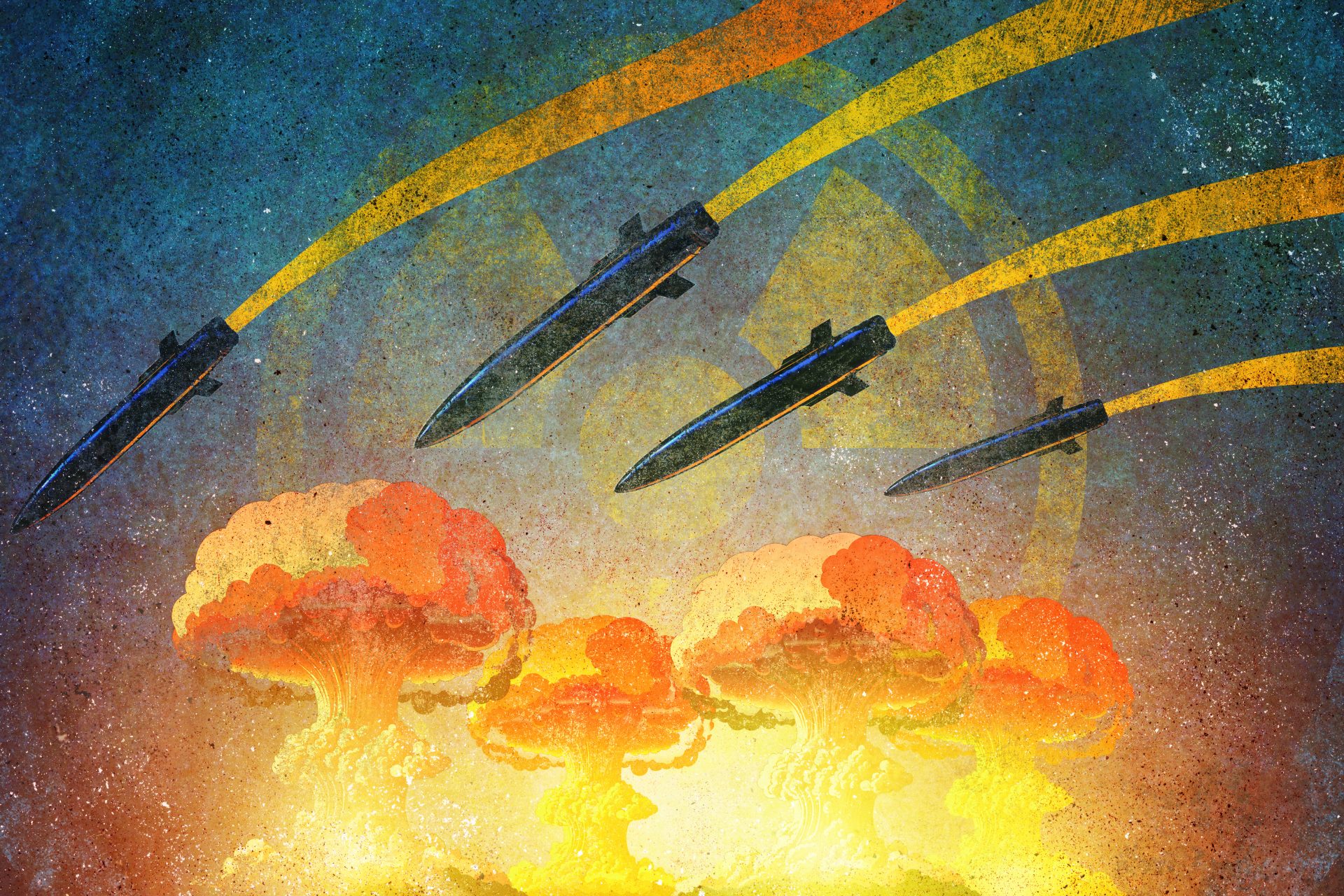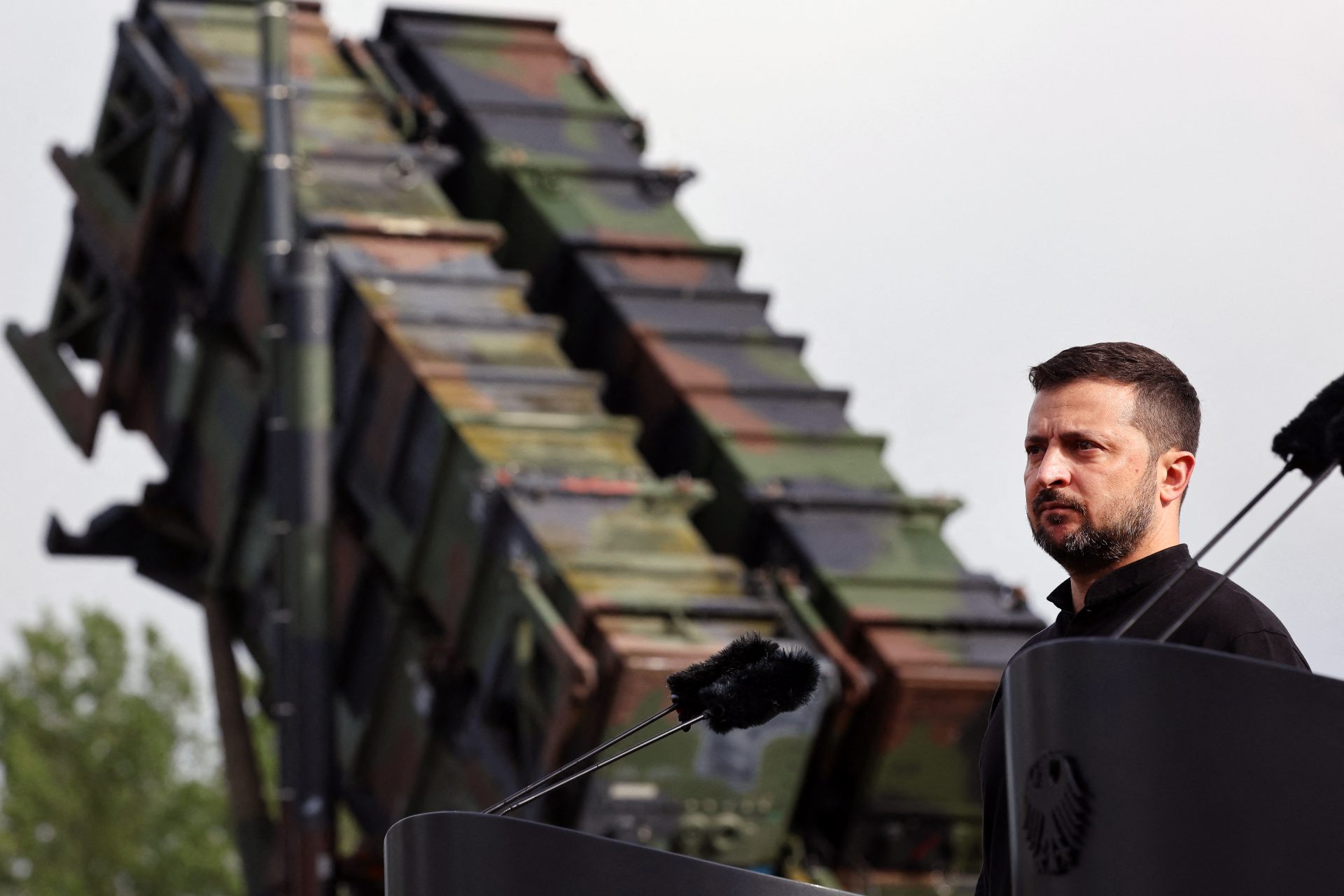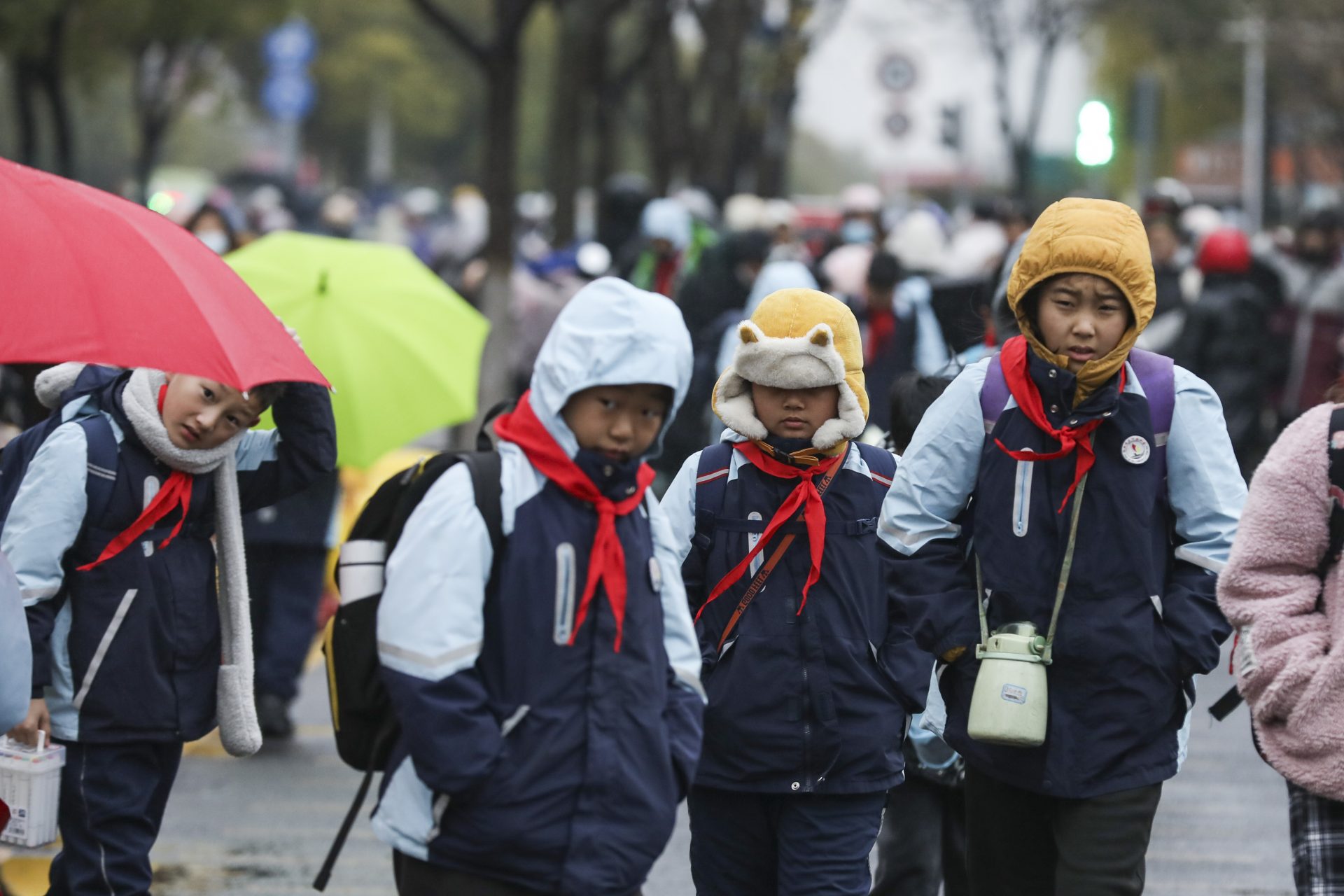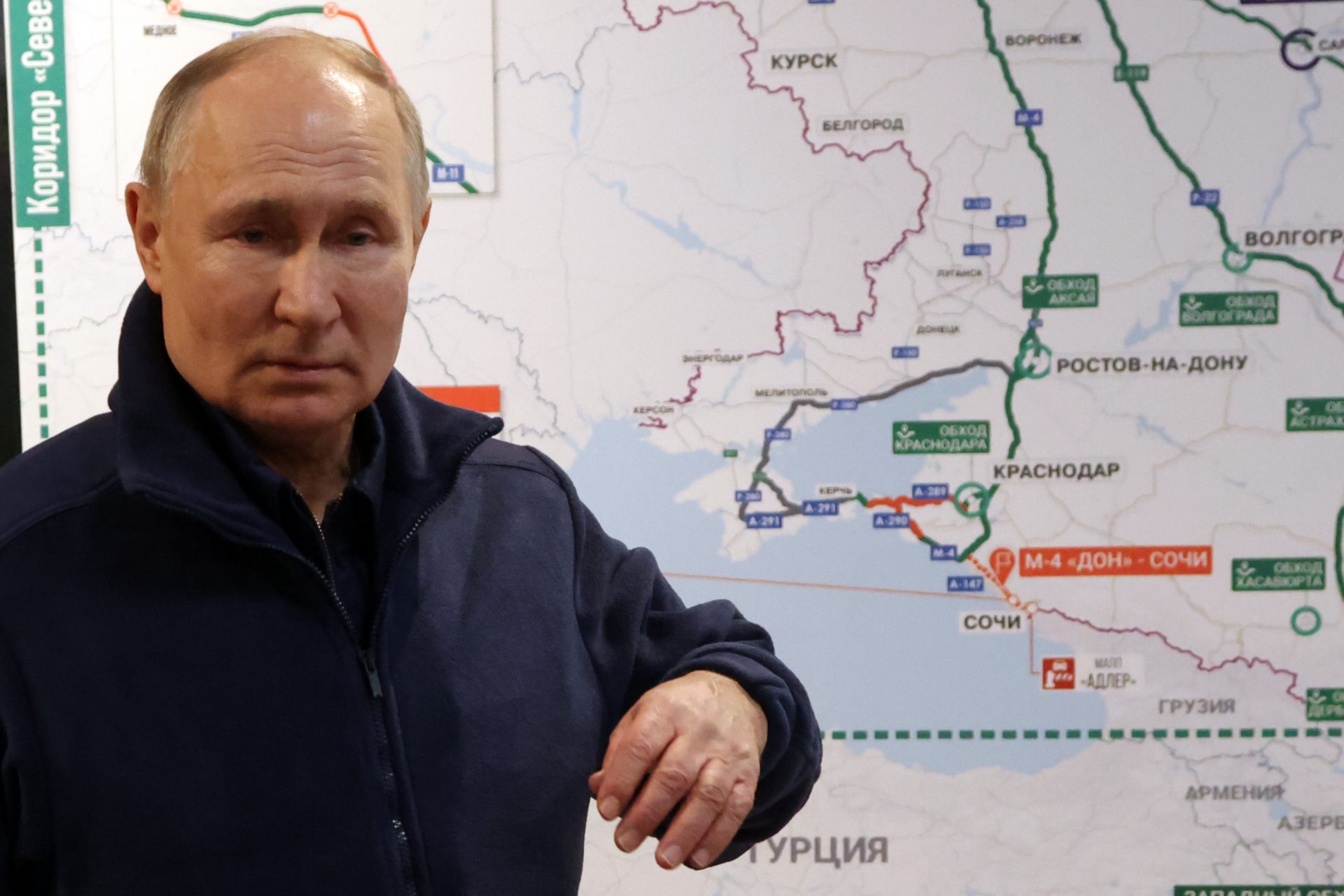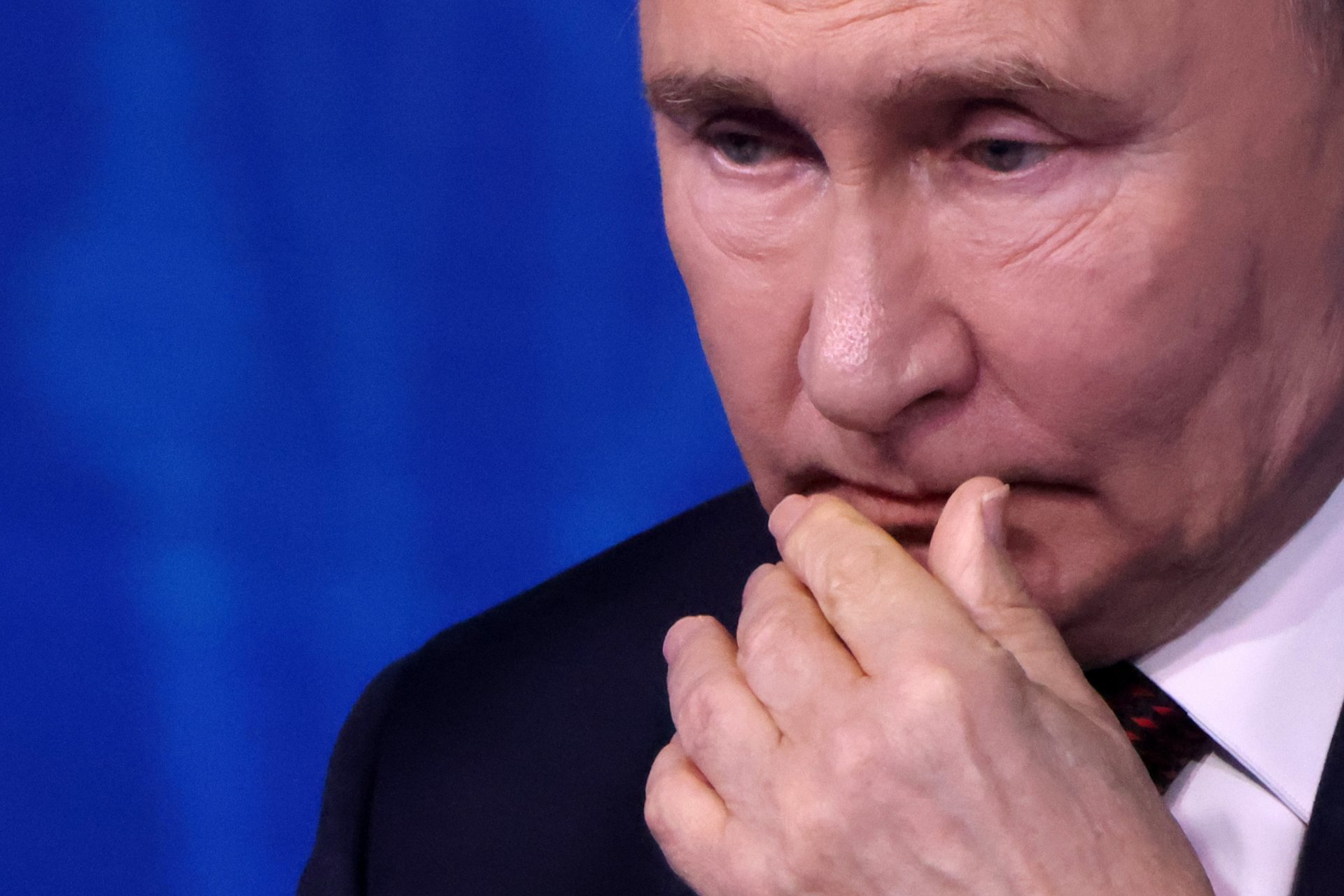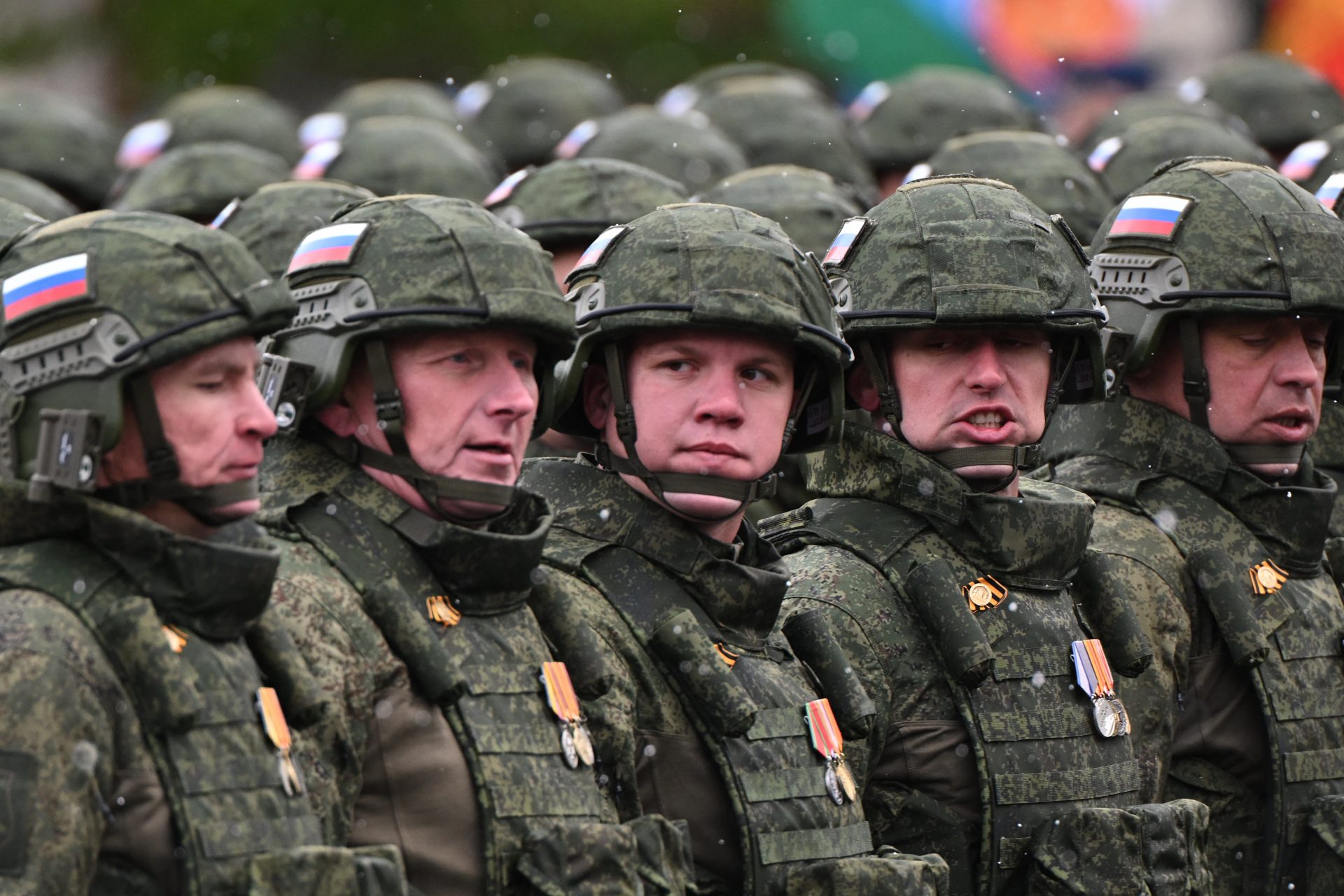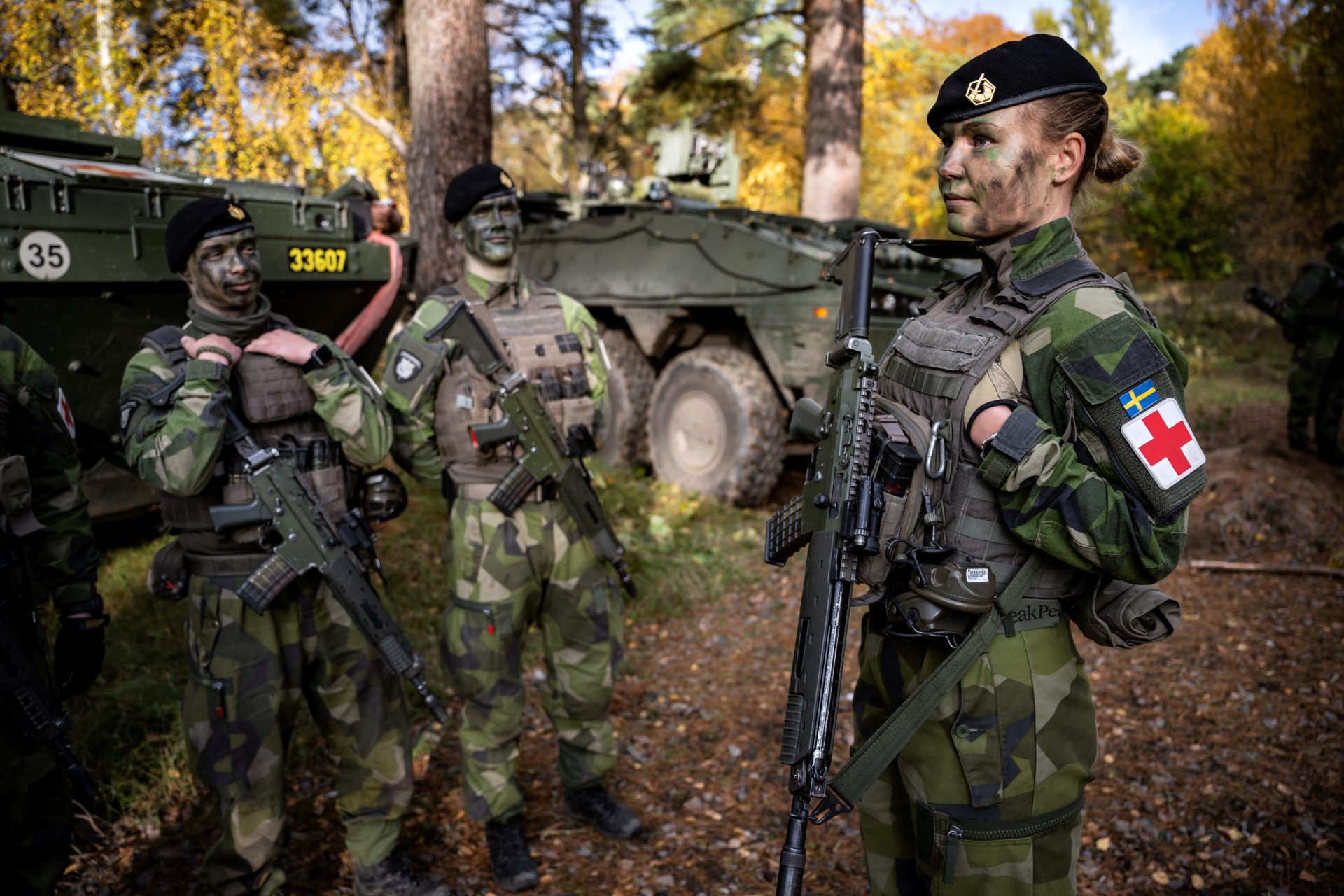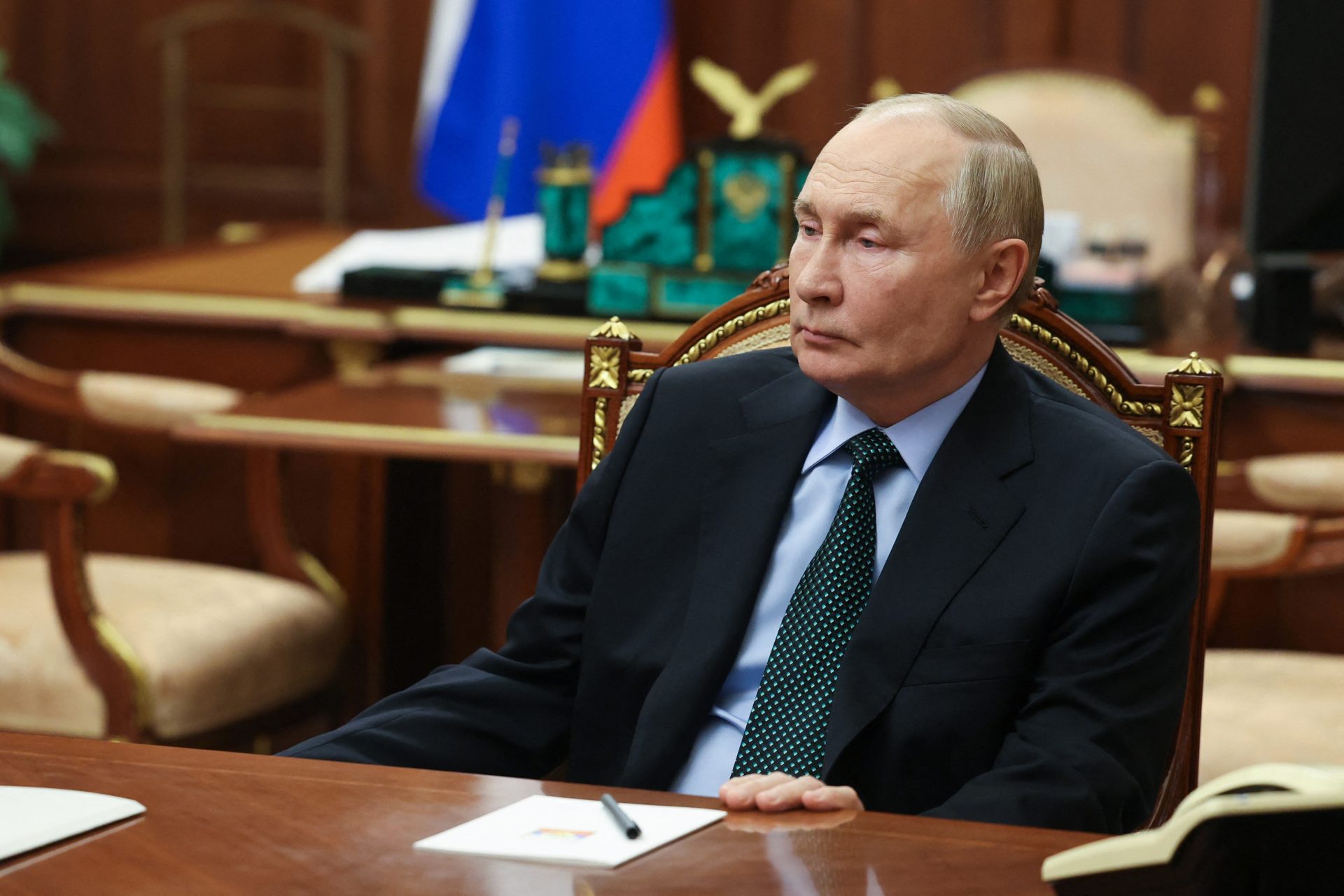60 years of History: Breaking news from the year you were born
Which global news event defined the year in which you were born? Let's look at 60 years of history's most potent events (from 2015 back to 1955) that shaped the world we live in today.
In 2015 Paris suffered two terrorist attacks. The first one was in January, with three simultaneous shootings in the offices of the satirical magazine Charlie Hebdo, a kosher grocery store, and the Paris suburb of Montrouge. The second attack was in November, with coordinated shootings and bombings that killed 130 and injured around 500.
The most significant news story of 2014 was also one of the largest mysteries in aviation history: the disappearance of Malaysia Airlines flight MH370. The Boeing 777 vanished with 239 passengers and crew on board and is still missing.
The biggest news story in 2013 was the leak of thousands of classified documents for the National Security Agency (NSA) by contractor Edward Snowden. The papers proved the state surveillance of the US to international and national citizens. But 2013 was an eventful year with the Boston Marathon Bombing and the birth of Black Lives Matter after the slaughter of Trayvon Martin.
The Sandy Hook Elementary School Shooting happened on December 2012. It shocked the US as 26 people, twenty children between six and seven years old, were killed by a 20-year-old shooter named Adam Lanza. The school is located in Newtown, Connecticut.
In May 2011, President Obama announced the death of terrorist Osama bin Laden after a successful Navy SEAL raid on his compound in Pakistan. Bin Laden was the mastermind behind the terror attacks against the US on 9/11.
In December 2010, a young Tunisian street vendor set himself on fire in front of the local governor’s office after government officials took his products and beat him, according to The New York Times. It was the starting point of a wave of protests in his country that spread to Algeria, Bahrain, Egypt, Libya, Yemen, Syria, and Jordan.
In January 2009, Barack Obama officially became the first black president in the history of the US. One of his first actions was ordering the closure of Guantanamo Bay, something that never happened in the end. He was controversially offered the Nobel Peace Prize that same year.
In September 2008, Lehman Brothers, then one of the biggest investment banks in the US, filed for bankruptcy protection, causing the most significant economic crisis of the 2000s. Marketwatch said Lehman's bankruptcy filing was the largest in US history.
In January 2007, Apple announced the launch of the first iPhone, changing the smartphone market forever. Time magazine named the device the invention of the year, calling it "the ghost of iPhones yet to come," predicting the growth of this technology.
In December 2006, Saddam Hussein was sentenced to death in a trial for his crimes against humanity. He was hung at dusk near the end of the year. The video of his execution caused controversy when it was released online.
A hurricane of category 5 hits New Orleans in August of 2005, killing approximately 2,000 and leaving many more residents of the Big Easy homeless. The precarious situation in the region of New Orleans becomes clear in the aftermath of the storm, and there is much criticism of President George W. Bush's handling of the catastrophe.
The North Atlantic Treaty Alliance (NATO) expands in March 2004, adding the former Soviet states Bulgaria, Estonia, Latvia, Lithuania, Romania, Slovakia, and Slovenia to its membership. NATO also talks to Finland, Georgia, Sweden, and Ukraine about increased partnerships or future memberships. All of this is caused Russia's leader Putin considerable nervousness.
It's a defining moment in US politics, international relations, and daily life in the Middle East. With help of some allies, such as the UK, American air forces start bombing Saddam Hussain's Iraq and later invade the country in a war that will never yield the suspected weapons of mass destruction over which it started, nor manage to limit itself to a brief 'Shock and Awe' as intended. American troops occupy Iraq until 2011.
On January 1st, after a decade of preparations, Euro coins and banknotes are introduced in 12 EU countries. It's the biggest cash changeover in history. To be more specific, the Euro was actually launched in 1999, but for the first 3 years, it was only used for electronic payments and accounting purposes.
On September 11th, al-Qaeda terrorists attack the United States using hijacked passenger aircraft and destroying the Twin Towers in New York. They also fly a plane into the Pentagon and cause an aircraft to crash in Somerset County, Pennsylvania. Almost 3,000 people are killed in the attacks.
The millennium starts with an international research endeavor, a space station circulating 250 miles above sea level and manned by an American-Russian crew. The ISS will host hundreds of researchers from all over the world with most of them coming from the United States.
In April of 1999, two teenage boys go on a killing spree at Columbine High School, murdering twelve students and one teacher before turning the guns on themselves. Their attack, along with many others that follow, spark protests against lenient gun laws in the United States.
No more looking in books: if you want to know the answer to any question, Google will find it for you. At the time of its founding, Larry Page and Sergey Brin are still Ph.D. students at Stanford University. They create the website as a research project.
Image: Nathana Rebouças / Unsplash
On August 31, Princess Diana is killed in a car crash in Paris with her new partner Dodi Al Fayed. Their chauffeur, who was trying to get away from the paparazzi in the city, also passes away. The accident becomes a source of many a conspiracy theory while British citizens criticize the royal family for their initially tepid reaction to the accident.
British researchers at the Roslin Institute manage to clone a sheep by using a somatic cell. The name of the famous mammal is Dolly. The event is considered the beginning of cloning.
The deadliest domestic terrorist attack in US history takes place in Oklahoma City's Alfred P. Murrah Federal Building. It kills 168 and injures over 680 others. Anti-government radicals Timothy McVeigh and Terry Nichols are charged with the bombing. McVeigh gets the death sentence and Nichols life in prison without parole.
The decades-long conflict between the country's two major ethnic groups, the Hutu and Tutsi, comes to a head with a killing spree in the summer of 1994. Over the course of three months, an estimated 800,000 people - mostly Tutsi - are killed. Devastating images of the genocide circulate in the world's news media.
Kim Campbell becomes the first female Prime Minister of Canada after her predecessor Brian Mulroney resigns. Her reign doesn't last long, however. She has to leave office after her party, the Progressive Conservatives, loses the elections later that year.
A lot is happening in 1992. The European Union is formed and the Bosnian war begins after several regions and ethnic groups in former Yugoslavia are pitted against each other. In the United States, the acquittal of the police officers who brutally beat Rodney King and get caught on video while doing it, sparks uncontrollable riots in Los Angeles.
The following countries gain independence when the Soviet Union dissolves: Uzbekistan, Tajikstan, Kyrgyzstan, Azerbaijan, Ukraine, Moldova, Lithuania, Latvia, Belarus, and Estonia.
South African activist and opposition leader Nelson Mandela is released after 27 years of imprisonment on Robben Island. Mandela is one of the prominent figures in the anti-apartheid movement. By 1994, the legislation supporting apartheid in South Africa is repealed.
On November 9, the Communist Party in East Berlin declares that, starting at midnight, citizens of East Germany will be free to cross the country's borders. This announcement sparks what several media have called 'the greatest street party in the history of the world.' People start slamming, breaking, and climbing the wall without any repercussions from the guards - a first in its history since 1961.
A suspected Libyan terrorist bomb explodes on a Pan Am jet over Lockerbie in Scotland. The explosion kills all 259 on board and eleven on the ground.
Several things happen in 1987, but what many will still remember vividly from its televised report is US President Ronald Reagan's visit to Berlin and his call to Gorbachev to 'tear down this wall.' On a different note, the cartoon 'The Simpsons' is on tv for the first time, Palestinians start the First Intifada against Israel, and in the Philippines, thousands die after a ferry crashes with an oil tanker and catches fire.
An explosion in one of the reactors of the Chernobyl nuclear plant, in the Soviet Republic of Ukraine, causes massive amounts of radiation and radioactive material to be released into the surrounding area. Thousands of people have to be evacuated and the 30 kilometers (19 miles) surrounding the plant become a deserted Zone of Alienation.
After sixteen years of being closed (since 1969 under the Spanish dictator Francisco Franco), the border between Gibraltar and Spain is officially reopened in February of 1985.
Image: Michal Mrozek / Unsplash
Extreme drought causes a massive famine in Ethiopia which kills approximately one million people. Meanwhile, in Bhopal, India, a chemical disaster, in which methyl isocyanate leaks from a pesticide plant, kills around 16,000 people and injures at least 100,000. It's the biggest industrial accident ever recorded.
President Ronald Reagan appears in the international arena several times this year. One big event is the bombing of a US military base in Beirut, whose victims you can see here with the president. 299 servicemen from the US and France are killed, along with six civilians. Days after the Beirut attack, and unrelatedly, the US invades the island nation of Grenada to replace its socialist government with a more American-friendly one.
After cases begin popping up of people with rare forms of pneumonia and other illnesses, the Center for Disease Control and Prevention officially names the cause of their conditions as Acquired Immune Deficiency Syndrome: AIDS. By the end of 1982, 500 people will have died from the infectious disease, and that's only the beginning.
In the first flight of the Space Transportation System or Space Shuttle, NASA sends astronauts into orbit with a new spacecraft. The event marks a new era in space travel and exploration. Five years later, the public is reminded that space travel is not 100% secure. The Challenger Space Shuttle, in this photo, explodes after takeoff and causes the death of its seven crew members in 1986.
John Lennon, a star of The Beatles and later a solo artist, is shot and killed outside his apartment in New York. He is only 40 years old. The shooter is an obsessed fan, Mark David Chapman.
After years of economic inequality and increasing support for the exiled religious leader Khomeini, the Shah of Iran is overthrown and an Islamic republic declared. Its laws are based on conservative Shiite principles. In November, mobs storm the US embassy in Tehran and take some 60 American hostages. They will not be released until January 1981.
Louise Brown, the world's first test tube baby, is born in Oldham, Manchester in the United Kingdom in 1978. Meanwhile, in the South American state of Guyana, an American cult leader leads his people into taking their own lives. 900 people die and 276 of them are children, USA Today recounts.
The King of Rock and Roll, Elvis Presley, is found lifeless in his home, Graceland, in Memphis, Tennessee. He is only 42 years old. Elvis dies of an apparent heart attack after suffering from health issues and an addiction to medication.
Steve Jobs (photo) and Steve Wozniak found the Apple Computer Company. By the early-2010s, it will be the biggest tech company in the world, valued at over $700 billion. On another note, Mao Zedong dies in 1976, leading to the end of the Cultural Revolution in China.
The Vietnam War ends with the takeover of Saigon by the communist troops of North Vietnam and the dramatic evacuation of American military and civilians from the city. With the victory of the Viet Cong, North and South Vietnam are reunited.
Richard Nixon resigns as president due to the Watergate scandal and subsequent impeachment proceedings. The scandal involves the Republican administration's coverup of a burglary in the headquarters of the opposition, the Democratic National Committee, during Nixon's reelection campaign in 1972. Nixon will be the only president in US history to resign.
A moving year with energy crises, Watergate, the coup in Chile, and the Yom Kippur War, but we have to focus on the Supreme Court ruling in Roe v. Wade as the moment in which abortion became legal in all of the United States. The landmark decision made it impossible for states to prohibit abortion procedures before the third trimester. In 2022, Roe v. Wade is overruled by a predominantly conservative Supreme Court with the case Dobbs v. Jackson.
Terrorism enters the world of sport with the massacre of eleven Israeli athletes by an Arab gunman. The year also marks Bloody Friday in Belfast and the napalm attack in Vietnam that is captured in infamous photos by Nick Ut.
A study by the US Department of Defense exposes mistakes made in the Vietnam war and the ways in which administrations have misled the American public about the escalation of the war. As USA Today recalls, the papers also reveal "an expanded campaign in Cambodia and Laos, especially clandestine bombing in Laos, which today is considered the heaviest bombardment in history."
In Vietnam's neighboring country Cambodia, the Khmer Rouge, supported by North Vietnam and the Viet Cong, starts a war to take over the country. The US responds by sending troops from Vietnam to Cambodia, even though the administration has assured the public that it would in fact deescalate the war in Indochina.
One of man's crowning achievements transpires when American Astronaut Neil Armstrong becomes the first human to set foot on the moon. He speaks the immortal words: "That's one small step for man, one giant leap for mankind."
Civil rights activist and religious leader Martin Luther King, Jr travels to Memphis, Tennessee to support the striking sanitation workers there. As he stands on the balcony outside his room at a Memphis motel, MLK is shot and killed.
Israel launches 'Operation Focus,' an air strike on airfields around the Sinai Peninsula. It starts the Six-Day War between Israel and an Arab coalition led by Jordan, Syria, and Egypt.
Indira Gandhi becomes the first - and so far, only - woman Prime Minister of India. She serves from 1966 to 1977 and then again from 1980 to 1984 when she is assassinated. A poll by the BBC leads to naming Gandhi 'Woman of the Millennium' in 1999. Time magazine lists her as one of the world's most powerful women 'who defined the last century' in 2020.
The Voting Rights Act of 1965 outlaws literacy tests and other discriminatory obstacles that have been responsible for widespread discrimination in the voting rights of African Americans. This is after the famous Selma-Montgomery walk in March 1965, initially struck down by the police on a day remembered as 'Bloody Sunday.'
After the US, Russia, the UK, and France, the communist country of China tests its first nuclear weapon, leading to increased anxiety about atomic war. In the same year, Stanley Kubrick releases his satire of the arms race: 'Dr. Strangelove, or: How I Learned to Stop Worrying and Love the Bomb' (image).
As he passes through Dallas, Texas during his multi-state reelection tour, President John F. Kennedy is shot in the head by a sharpshooter. The President and his wife are sitting in an open convertible with the Texas Governor and his wife. Lee Harvey Oswald, charged with the assassination, is shot two days later, making it impossible to learn about his motivations or possible collaborators in the murder of JFK.
For 13 days in October 1962, an escalation of the Cold War into nuclear war seems more realistic than ever. The US learns that the Soviet Union is building atomic missile installations on Cuba and responds with a naval blockade around the island. President Kennedy demands the removal of the missiles. He finally agrees not to invade Cuba, the two nations compromise, and nuclear war is narrowly averted.
Image: Wikimedia
The Cold War dominates the news in the 1950s and 1960s. Facing a loss of skilled workers, East Germany decides to close its border with West Germany and build a wall of 27 miles through Berlin, a city that had been divided into allied and Russian zones since the end of World War II.
Congo becomes independent from Belgium, but freedom is difficult to manage. A five-year-long civil war leaves approximately 100,000 dead.
After US-backed dictator Fulgencio Batista flees the country, socialist forces under Fidel Castro take over Cuba. They establish a communist government on the island nation, 90 miles from the coast of Florida.
Under Mao, China begins an industrialization and collectivization program called the Great Leap Forward. Forcing the population to work in communes and deliver production quotas, it lowers the availability of resources to the people themselves and leads to poverty and hunger. The Great Chinese Famine will take the lives of 15 to 30 million people by 1961.
After Sudan and Tunisia have become independent nations in 1956, Ghana gains independence in 1957. Until then, it is known as the British colony of the Gold Coast. Sudan and Tunisia had been under French rule. In 1960, 17 other African countries will achieve independence.
Having been pushed into the Soviet-dominated Eastern Bloc at the end of World War II, Hungarians take to the streets and demand democratic reforms in 1956. Shortly after, Red Army troops invade the country and crush the uprising, killing thousands of citizens.
After school desegregation is official with Brown v. Board of Education in 1954, civil rights activism in the United States reaches a new level. Rosa Parks refuses to sit in the back of the bus in Montgomery, Alabama, where it is a rule for Black people to yield the front seats to white people. With help from the NAACP and a young Martin Luther King, Montgomery buses become desegregated by the end of 1955.
More for you
Top Stories


































































